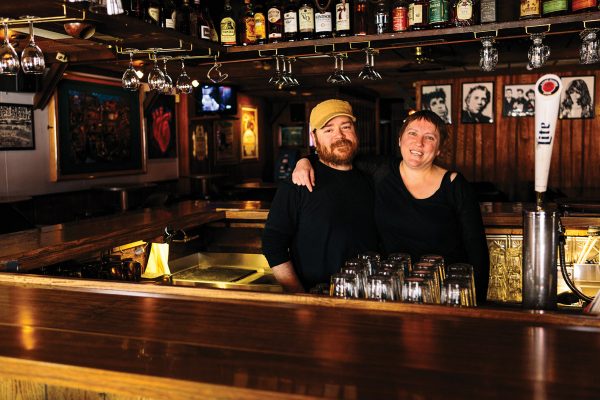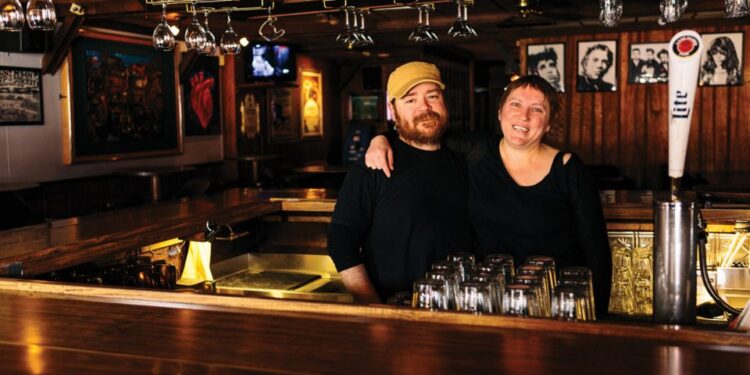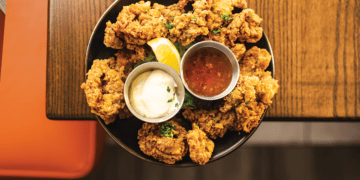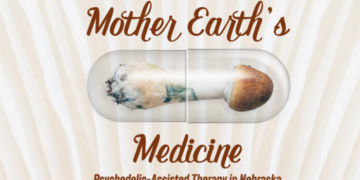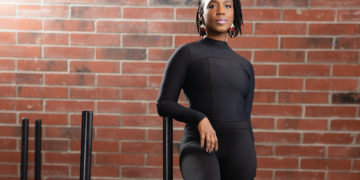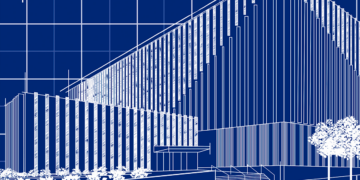You can call Brothers Lounge a “punk bar” and not get too much grief from so-called “punk purists.” However, calling Brothers a “punk bar” is like calling The Clash a “punk band.” Technically, it may be true, but both are so much more than that definition.
But to truly understand Brothers (located at 3821 Farnam St.), you must go back to its beginnings.
More than a decade before 1977 (or “The Year That Punk Broke”), three brothers—Joseph Jr., Ernest, and Robert “Bobby” Firmature—opened The Brothers Firmature. The Firmature brothers had already established themselves in the Omaha dining and bar community with establishments like the Gas Lamp and the Ticker Tape Lounge. For the first 20 years, The Brothers Firmature—located next to the Colonial Hotel at 38th and Farnam streets—was a cozy bar, complete with drapes on the windows and a tiny dance floor (where two dartboards reside today).
The Brothers Firmature’s patrons included insurance reps from nearby Mutual of Omaha, reporters for the Omaha World-Herald, and the occasional long-stay occupant of the Colonial. It also became a respite for a young Omaha couple—Trey and Lallaya Lalley.
Not yet married, the Lalleys operated the Capitol Bar, which was located downtown near 10th and Capitol streets. In its heyday under the Lalleys, the Capitol helped jumpstart Omaha’s burgeoning indie-rock scene by booking lots of local and national acts. The Lalleys would frequent The Brothers Firmature on Sundays, their only day off. The bar offered an escape from the demands of club management and music promotion.
“It was our secret spot for us and a few friends,” Lallaya recalls.
“It felt like your weird uncle’s cool basement,” Trey adds.
In the mid-’90s, after the Capitol Bar closed, Trey worked at the now-shuttered Theodore’s Bar located at Saddle Creek and Leavenworth streets. Lallaya ran the front of house at McFoster’s Natural Kind Cafe, which was located across the street from The Brothers Firmature on Farnam. The beloved organic restaurant shut down last year. Around 1997, Trey and Lallaya were approached by Robert Firmature about working at The Brothers Firmature in hopes that the two would eventually take over ownership. In the meantime, Bobby offered to mentor both Trey and Lallaya on the ins and outs of operating such an establishment.
“I knew how to smile and sell a beer, but I didn’t know how to do the books,” Trey says.
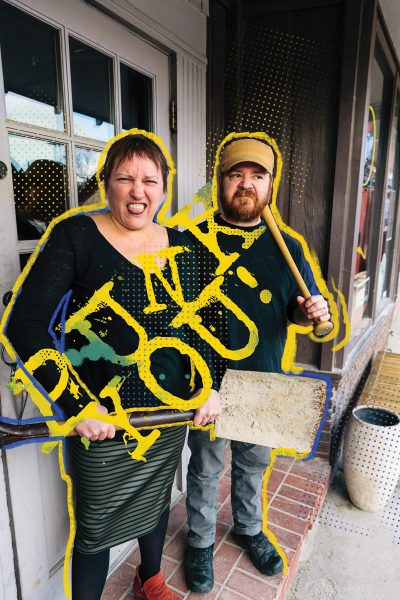 Trey and Lallaya took over Brothers in 1998. Some of the original decor remains (the original The Brothers Firmature sign, old movie posters like The Plainsman, starring Gary Cooper, and Riders in the Sky, starring Gene Autry), but the attitude of the place took on a new edge. In 2003, they were operating as owners. In 2012, they owned the building outright.
Trey and Lallaya took over Brothers in 1998. Some of the original decor remains (the original The Brothers Firmature sign, old movie posters like The Plainsman, starring Gary Cooper, and Riders in the Sky, starring Gene Autry), but the attitude of the place took on a new edge. In 2003, they were operating as owners. In 2012, they owned the building outright.
Edward Huddell has been coming to Brothers for almost 40 years. Sitting at the bar on a Friday night, sipping a lemonade, Huddell said he knew Robert Firmature, but connected more with Trey and Lallaya. During Huddell’s heyday, he would go to Brothers three or four times a week. His drink of choice: Rolling Rock or tequila shots.
“When I first came here, there was mostly Mutual of Omaha people. Then, after a while, it became more working-class people,” Huddell says. “When Trey and Lallaya took over, the average age of the patrons went down quite considerably.”
Trey and Lallaya’s personal touches are all over the bar. Brothers has become home to one of the most revered music jukeboxes in the Heartland, hosted a secret show by The Faint, and now serves as a sort of bridge between old neighborhood regulars and new patrons who are drawn to the renovated Blackstone District.
Visually, there are subtle indicators of Brothers’ punk aesthetic: the obligatory bathroom graffiti, black-and-white portraits of Joey Ramone, Nick Cave, and The Clash. But the obvious indicator is in its fabled jukebox. It’s one of the few in the city that contains actual physical CDs, chosen by the bar owners. Along with established icons including Bad Brains, X, and Dead Kennedys, it also plays beloved hardcore and punk staples like the Pornhuskers, Agent Orange, and the Circle Jerks.
Trey and Lallaya have a simple system regarding what goes into the jukebox: Both must agree on the CD. Having a bar where you can determine what is played has its advantages, but also some obvious drawbacks. The primary one being the risk of burning out on some of your favorite bands.
“It’s ruined some of my favorite records of all time for me,” Trey says. “What can’t I listen to anymore? Minor Threat. Black Flag, Slayer, and any Ramones song. Bands I cherished and love, I just wore into the dirt.”
Many of the institutions near Brothers have either went away (McFoster’s), or have dramatically revamped themselves (Sullivan’s). The rest of the businesses are part of the newer bars and eateries in the Blackstone District. The new businesses have given Brothers some new patrons, who mainly stop by more out of curiosity while bar-hopping than to hang out, Lallaya says.
“I call them ‘weekend tourists.’ They stop by once or twice, and they never come back,” she says.
Trey expressed some annoyance with the development around the bar. For months, it looked like Brothers was under construction as the high-end bar and kitchen eatery Stirnella, located next door, was being built. Parking has also become a problem, Trey says.
“I’m all for progress. I just really liked it the way it was before. People came here for a reason. It wasn’t just like ‘Oh, what’s this place. Let’s walk in and check it out.’ It was ‘Let’s go to Brothers.’”
One notable blogger of historic Omaha falls into the “Let’s go to Brothers”-style of patrons. She was so taken by the bar’s history that she penned an exhaustively researched piece about its history for her blog, My Omaha Obsession. Because of the sensitive nature of her job, she chose to remain anonymous, opting to use her pen name, “Miss Cassette.”
Miss Cassette spent months researching the history of the Brothers building. In a post titled “Brothers Lounge and the Case of the Vanishing Mom and Pop,” Miss Cassette used old articles from the Omaha World-Herald and The Omaha Daily Bee, as well as the Omaha city directory to trace the building’s history. Some key facts she discovered was that the spot where Brothers now resides used to be home to two separate businesses. Before the Firmature brothers bought the building, it was a grocery store and a self-service laundromat.
Miss Cassette began her research the same way she does most of her stories: by tracking down the city directory. “It starts with the address, then I see what shakes out,” she says. “It gets really rabbit hole-ish.”
In 2016, Brothers celebrated its 50th anniversary. Trey and Lallaya plan to keep Brothers operating long enough to justify another research piece by Miss Cassette. Don’t expect many changes to the bar, with the exception of more live shows. Lallaya says the number of live shows has grown from six to about 25 each year.
Trey says he can imagine running the bar for another 20 years, minus a week or two off a year for vacations.
“We don’t have an exit plan. This is it…We were in business to have a good time with our friends, not to make millions of dollars and sell out. Obviously, we did that,” Trey says with a laugh.
Visit facebook.com/brothersloungeomaha for more information.
This article appears in the July/August 2017 edition of Encounter.
